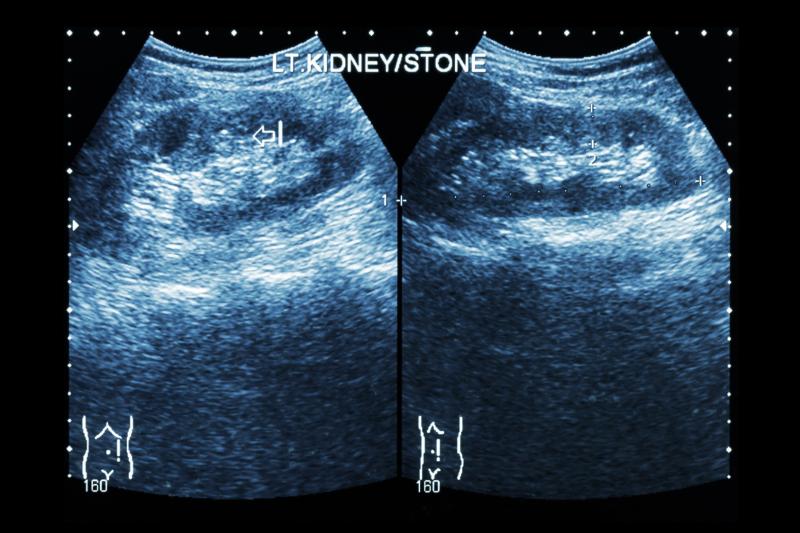
A study in Japan has revealed an association between severe insulin resistance and kidney stone formation under normoglycaemic conditions.
Formation of kidney stones can be prevented by engaging in physical activities, which help improve insulin resistance.
This prospective cohort study included 4,007 participants (age, 35–79 years; 2,084 men) who voluntarily underwent medical examinations between April 2007 and August 2011 and were found free of kidney stones. Follow-up data were obtained at 5 years after baseline examination. Those with diabetes mellitus or fasting glucose level ≥140 mg/dL at baseline were not included in the study.
Participants were divided according to their homeostasis model assessment of insulin resistance (HOMA-IR) and fasting insulin levels: “control” group (HOMA-IR <2.5 and insulin <15.0 µU/mL); “moderate IR” group (HOMA-IR ≥2.5 and insulin <15.0 µU/mL); and “severe IR” group (HOMA-IR ≥2.5 and insulin ≥15.0 µU/mL). None of them had low HOMA-IR and high insulin level.
The authors compared demographic variables and physical activities, including walk and sedentary times, among the three groups. They performed logistic regression analysis to estimate the odds ratio (OR) and 95 percent confidence interval (CI) for incident kidney stones at 5 years after baseline.
At baseline, 1,878 men and 1,812 women were included in the control group, 158 men and 91 women in the moderate IR group, and 48 men and 20 women in the severe IR group. Of the participants, 97 men (4.7 percent) and 45 women (2.3 percent) developed kidney stones at 5 years after baseline.
“Body mass index, abdominal circumference, blood pressure and triglycerides were significantly higher and high-density lipoprotein cholesterol was significantly lower in the order corresponding to the control, moderate IR and severe IR groups,” the authors said.
Men in the severe IR group were more likely to form kidney stones (OR, 2.91, 95 percent CI, 1.02–8.25), after adjusting for multiple variables. On the other hand, no difference was seen between IR and kidney stone formation in women.
Of note, IR correlated with a sedentary lifestyle, according to the authors.